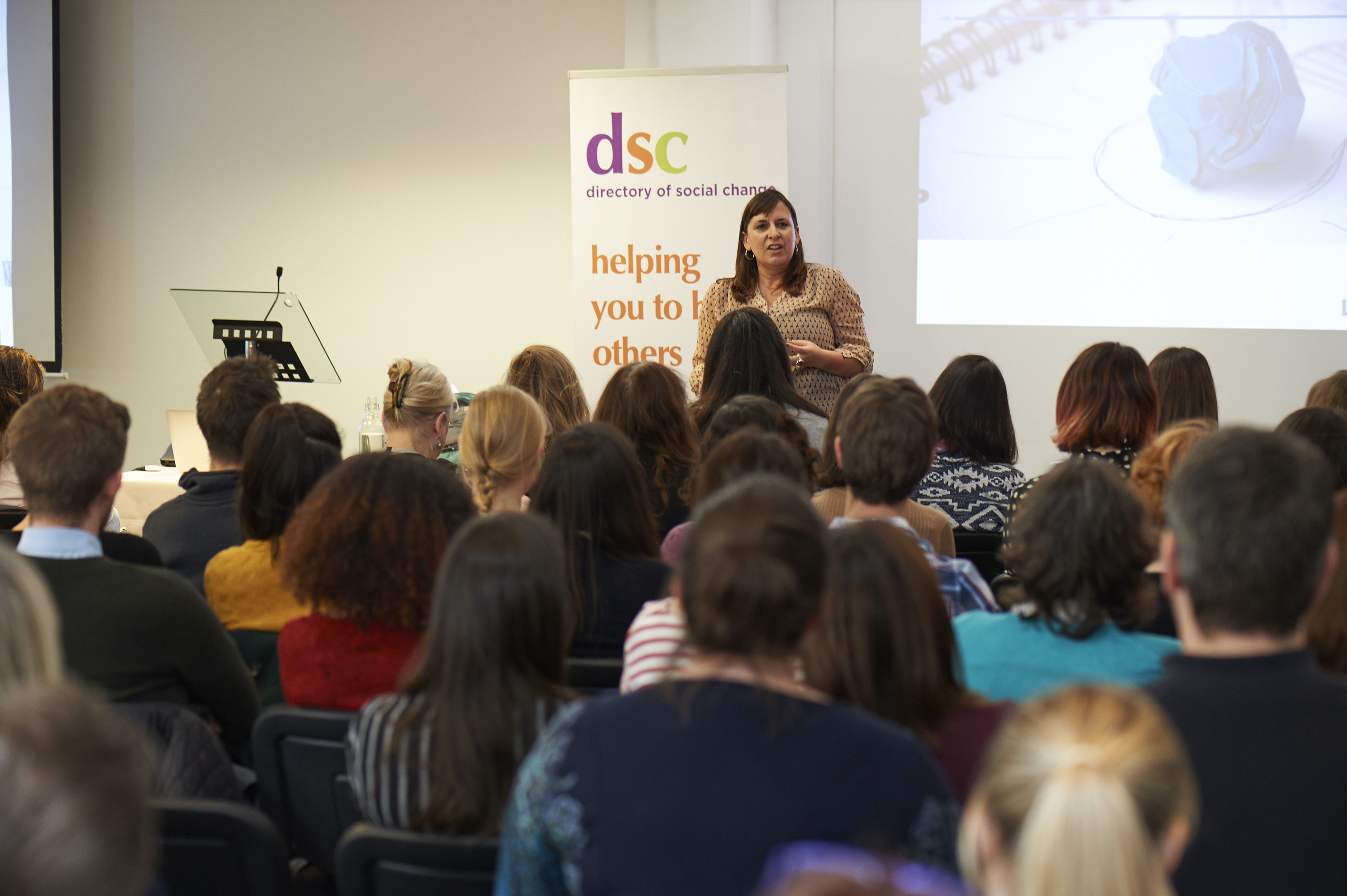Seven top tips for public speaking (from someone who understands the struggle)
Public speaking: don't let it daunt you. Here are some of DSC Director of Policy and Research, Jay Kennedy's top tips.
For a lucky few public speaking just comes naturally. Sadly I’m not one of them – but in my role as a Director of Policy and Research it’s a key skill that I’ve had to work on. There’s always more to learn, but here are some practical tips that have helped me succeed over the years. I hope they help you too.
1. Investigate your audience beforehand.
Who are they? How many are they? What do they want from you? Try to get an idea of their expectations, level of experience, roles and background if possible. If you can meet some of them before you step up to the podium, this will help you pitch your comments the right way and will most likely help you relax – because you’ll realise they are human, not evil sinister hecklers out to make you look bad!
2. Arrive early.
If you’re like me, rushing to your speaking event or being late will make your stress levels skyrocket. So figure out the location, how long it will take to get there, and leave plenty of time. You can always decamp to a café and rehearse if you’re too early. Get a sense of the room, the seating, where you will be standing, any technology etc. Have a casual chat with the organisers and delegates – it helps you to understand the ‘vibe’ of the event and to get comfortable.
3. Don’t be boring!
Being controversial, challenging or even a bit rude is better than being dull – because it will engage your audience. Being boring is the cardinal sin of public speaking. Boring means people just tune out and can’t wait for you to get off-stage. Use your creativity – even if it is from a part of your life unrelated to work. Think: would you want to sit through your own presentation?
4. Use humour as much as you can.
Steal it if you don’t feel like you have it yourself, by nicking witty phrases, cartoons and images from funny people! Of course you need to beware of dodgy or inappropriate jokes, and judge how far you think you can push the envelope with your audience (remember 1 above!).
5. Use images to communicate, not text.
Chunky paragraphs of tiny font text on a Power Point presentation will rapidly put your audience into a coma. Reading them off yourself will be the coup-de-grace (remember 3 above!) Giving them printed slides to read whilst you speak will induce whirlwinds of ruffling paper, and discourage engagement with you. Minimise the use of text as much as possible. Use interesting images, graphs, and cartoons to reinforce your points. Things like google images are a goldmine.
6. Rehearse out loud, and time yourself.
I suspect many people don’t do this, and it’s a pain, but it really helps. I usually do 2-3 full timed rehearsals, depending on how much needs to be changed in between. Running out of time means you won’t be able to finish your comments, or you’ll make the event agenda go pear-shaped. If you want, find some colleagues to be your guinea pigs to test it on first. This can help spot pit-falls and mistakes, and the ‘trial run’ can make the real thing feel less scary.
7. Try to make eye contact and engage…
…with ‘allies’ in your audience when you’re mid-flow. Be open with your body language, have a bright face and speak loudly. If you feel a bit fake or too loud or like you’re over-emphasising, you’re probably doing it right. Don’t worry if you aren’t getting much feedback from your audience – this is pretty normal (especially after lunch!) and doesn’t mean you’re failing. If people are smiling, chuckling, nodding, or frowning – even a little bit – this means you are really getting through. Engage those people visually and it will rub off on others.
Finally, don’t beat yourself up! This is one of the most difficult skills to master in any job. In my experience you only get better by doing it, making mistakes, and thinking about how you could do better next time.
Take confidence from the fact that plenty of public speaking even by senior people isn’t that great, and that most of us find it terrifying. You don’t have to be a TedTalks superstar to succeed – being a bit better than the average goes a long way.
I hope these tips help you – and happy public speaking!

